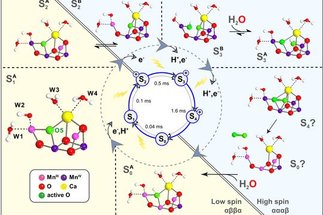
Molecular Theory and Spectroscopy
Our department is interested in fundamental science related to the activation of small molecules by transition metals in a broad sense as well as in the development and application of quantum chemical methods. The activities of the group span the three major, interrelated areas:
I. Development of new quantum chemical methods
II. Computational chemistry
III. Molecular spectroscopy
The leading overall motivation is to unravel reaction mechanisms of complex, transition metal catalyzed reactions at the electronic structure level. As the experimental means of addressing electronic structure involves various forms of spectroscopy, a thorough understanding of structure/spectra relationships is of paramount importance (and clearly branches into the area of material science). Furthermore, the characterization of reaction intermediates can in almost all cases only proceed through a thorough interpretation of spectra taken under transient or quench conditions.
The department for molecular theory and spectroscopy takes a rather unique approach to the analysis of catalytic reactions. The focus of the work is a close interconnection between theory and experiment. On the experimental side, a wide range of spectroscopic methods is used to study catalytic systems, partially under in-operando conditions. The spectroscopic data contains information about the geometric and electronic structures of the systems under investigation. The information content of the data can, however, only be fully developed by supplementing the experimental data with quantum chemical calculations. In this way, one not only is able to interpret the experimental data to its full capacity but also obtains critical feedback about the validity of the calculations. The insights obtained about electronic structures and reaction mechanisms help in the design of new, improved catalysts. This approach can be implemented in all areas of catalysis including homogeneous, heterogeneous and biological catalysis and therefore complements the activities of the other departments at the MPI Kofo. In addition to chemical applications, the department is also deeply involved in the development of new theoretical methods with a focus on theoretical spectroscopy and highly accurate correlated wavefunction approaches to large molecular systems. The offspring of these efforts is the ORCA program, a general purpose quantum chemistry suite that belong to the most widely used electronic structure packages world wide.






